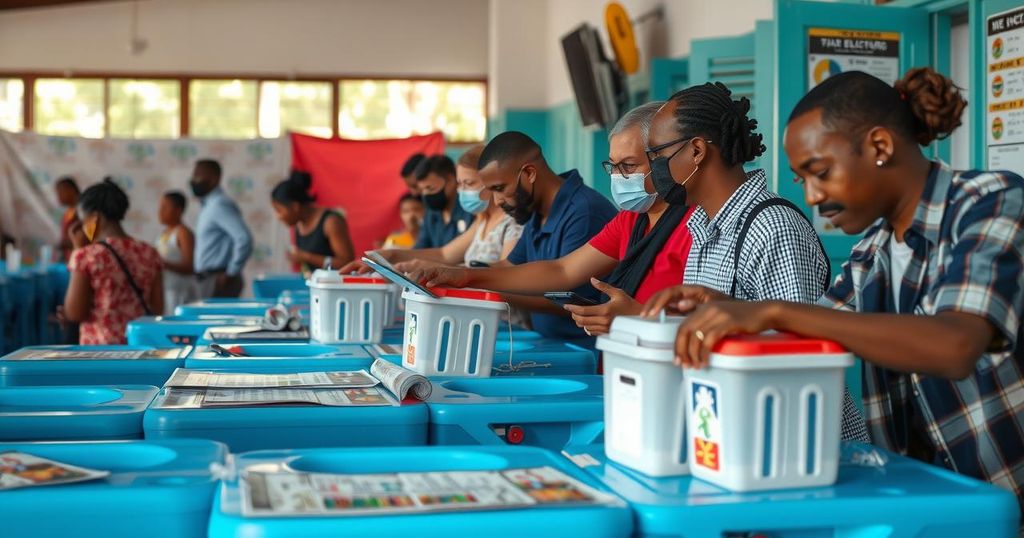Comoros Votes in Parliamentary Elections Amid Allegations of Irregularities

Voters in Comoros are electing a new 33-seat parliament amid allegations of electoral irregularities following President Azali Assoumani’s controversial re-election last year. Approximately 338,000 individuals registered to vote in this election. The opposition has called for a boycott, and results are expected by Friday, with significant implications for the political landscape.
On Sunday, voters in Comoros participated in elections to fill the 33 seats of the parliamentary assembly, one year following the controversial re-election of President Azali Assoumani. The ruling party has dismissed claims of electoral irregularities as unfounded. Approximately 338,000 registered voters attended polling stations early in the morning. The last parliamentary elections were held in January 2020, and the Supreme Court selected nearly 100 candidates to compete in the current elections.
Opposition leaders criticize President Assoumani for authoritarian tendencies and speculate that he is grooming his eldest son, Nour El-Fath, to succeed him after his term concludes in 2029. Having held power since a coup in 1999, Assoumani has won three subsequent elections. Moreover, in 2024, he delegated significant authority to his son, entrusting him with the coordination of all government functions.
Some opposition factions, including the Juwa party, led by former President Ahmed Abdallah Sambi, who recently received a life sentence, have urged a boycott of the elections. In contrast, other groups have opted against this call to abstain from the polls. As Hamidou Karihila, an opposition candidate from the Hope of the Comoros party, stated, “The Azali regime is weakened … by participating in these elections we are contributing to further exposing the flaws in its system and accelerating its inevitable fall.”
Vote results are anticipated by Friday, adding a layer of urgency and significance to the electoral process.
The upcoming elections in Comoros occur within a context of political turmoil and allegations of governance shortcomings. President Azali Assoumani, who has a long-standing tenure since 1999, faces significant criticism from opposition groups, who accuse him of entrenching authoritarian practices. The implications of these elections could significantly alter the political landscape of Comoros, particularly regarding the potential succession by Assoumani’s son. The call for a boycott by some opposition factions introduces further complexity to the electoral process and reflects a divided political landscape.
The parliamentary elections in Comoros are pivotal, reflecting the ongoing tensions between the ruling party and opposition forces. With accusations of authoritarianism hovering over President Assoumani’s regime, these elections are not merely a formality but a crucial test of the current administration’s legitimacy and the strength of opposition movements. The anticipated election results will reveal the dynamics of political power in Comoros and could influence future governance in the archipelago.
Original Source: www.singletonargus.com.au








